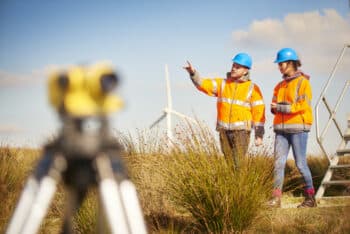How the Mobile Science Laboratory is Educating the Third World
Sometimes it is easy to take for granted the standard of the laboratory equipment provided for UK schools, helping children take their first steps in the sciences and building a life-long love for the subject. Children in many countries are not so fortunate, learning in truly sub-standard classrooms, giving the students little-to-no experience in the practical sciences.
In India this problem is particularly rife, with schools outside of the major cities receiving minimal funding and means to stock a comprehensive laboratory. However, the non-profit organisation, Vidnyanvahini might have found a solution to help students all around the massive country receive the opportunity to participate in the practical sciences and mathematics.
Vidnyanvahini’s, Mobile School Laboratory (MSL), is looking to take practical science to students throughout the country. The MSL is a bus stocked with a TV, DVD player, laptop, projectors, wash bins and five or six teachers every day as it travels to different schools educating students in the sciences.
The organisation has enlisted the help of roughly 25 teachers (mostly retired professors, scientists and engineers) who volunteer through the week to bring education to far-flung schools. Each of the teachers have received degrees in scientific subjects, and many have been leading figures in their industries – ensuring the students receive the highest levels of expertise.
Unfortunately one science laboratory bus struggles to accommodate the needs of all the under-privileged schools of the country, so Vidnyanvahini has to pick the schools based upon their needs, size and location. With no financial support from the Indian government, the MSL relies upon contributions from a large number of Indians living outside of the country.
Despite the challenges faced by Vidnyanvahini and the teachers aboard the MSL, the organisation’s president, Pushpa Deshpande, believes the endeavour has been a huge success. She proudly boasts that the schoolchildren react incredibly positively to the MSL, enjoying the chance to learn whilst using equipment and facilities they have never seen before.
The MSL campaign runs every year between June and February, stopping when the students enter the exam period of their academic year. The eight month run fits in a huge number of schools, particularly in the state of Maharashtra, where the bus visits every single school.
With a population comfortably over the 1 billion mark, it is hugely important that India’s next generation are given the opportunity to learn the sciences and pursue their interests in the subject. These engaged students could contribute significantly to the science industry in the coming decades, helping progress studies and breakthroughs.
At InterFocus we take high quality research laboratories incredibly seriously. If your lab space needs an update or you require a whole new suite, the InterFocus team will be able to help. For more information visit our homepage or contact our dedicated customer services team on 01223 894833.



